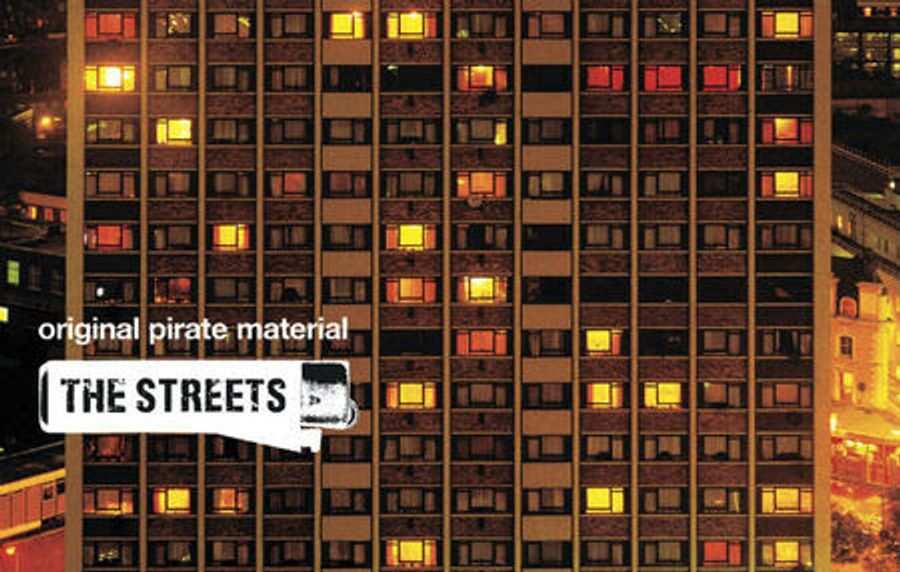From the moment the strings begin at the start of ‘Turn The Page’, and Mike Skinner introduced himself in the opening bars as ’45th Generation Roman’, nothing has been the same in British music. the Streets’ seminal LP, Original Pirate Material still just as important today as it was in 2002.
In the current day and age, culturally, people are more isolated than ever, with few artists able to connect people from all walks of life, threading the collective humanity we all share through the eyeholes of the individual. But that’s precisely what The Streets effortlessly managed to do with their debut. Whether you were a kid from a tower block in London or from the leafy suburbs of Birmingham like Skinner, Original Pirate Material honed in on the universal which unites us all.
Sonically, it’s a bedroom garage album that Skinner made in his own crumbling abode in Brixton, but it also circumvented the lifestyle flexes which were rife in the genre. After all, that wasn’t the life he was living. Instead, he wrote in microscopic detail about the monotony of Monday to Friday living along with the euphoric highs of a serotonin-draining weekend.
Authenticity is at the core of the album’s success, whether on the melancholic break-up anthem ‘It’s Too Late’ or when it transitions into the hazy, drunken ‘Too Much Brandy’. Little relatable details are peppered throughout the record, such as on the aforementioned track where Skinner’s internal monologue weighs up the queue at the club and says, “Now getting to the bar’s gonna be trouble, So the Marlons’ll have to be doubles.”
Speaking to The Guardian in 2009, Skinner discussed how his problem with the genre subconsciously inspired the tone of his debut. “I’ve probably said it too many times now, but that’s where Original Pirate Material came from: all this stuff about get the girl and drink champagne on the dancefloor, it sounds nice to my ears, and I like that bass line, but sorry mate, I don’t know what you’re talking about’,” he explained.
“My experience of listening to UK garage, which was huge, was in people’s cars and houses … and the idea behind Original Pirate Material was to make music which reflected that – to be someone who was on the one hand very English, but at the same time a bit like Nas, and could come up with these cool-sounding couplets about all the weed that gets smoked and all the little adventures that you go on,” Skinner continued.
These “little adventures” Skinner mentions make up a proportion of the record, such as going to the cafe during the morning after the night before on ‘Don’t Mug Yourself’. However, there’s also an abundance of depth discretely hidden behind the seemingly smiley facade, which is why The Streets continue to be relevant two decades on from the release.
On the surface, his celebration of rave culture on ‘Weak Become Heroes’ might seem trivial, but Skinner proves why those nights are responsible for some of our most formative experiences and gives the subject a grandeur you previously didn’t know it deserved.
Additionally, the album closer, ‘Stay Positive’, finds the protagonist on the brink and represents the darkest moment on the record. Considering his audience is primarily British males who prefer to bottle up their feelings, especially in 2002, hearing him rap, “The dark shit’s unwrapping, But no-one’s listening your mates are laughing,” was groundbreaking.
In truth, the three most significant British albums of this century are Original Pirate Material, Boy In Da Corner, and Whatever People Say I Am, That’s What I’m Not, with Mike Skinner’s creation sitting comfortably in the middle ground between the other two.
Despite being twenty years old, Original Pirate Material still gleams. While numerous artists have tried to recreate Skinner’s seemingly simple formula, nobody has come close to replicating his wit, which is the secret ingredient that fuels the record.
